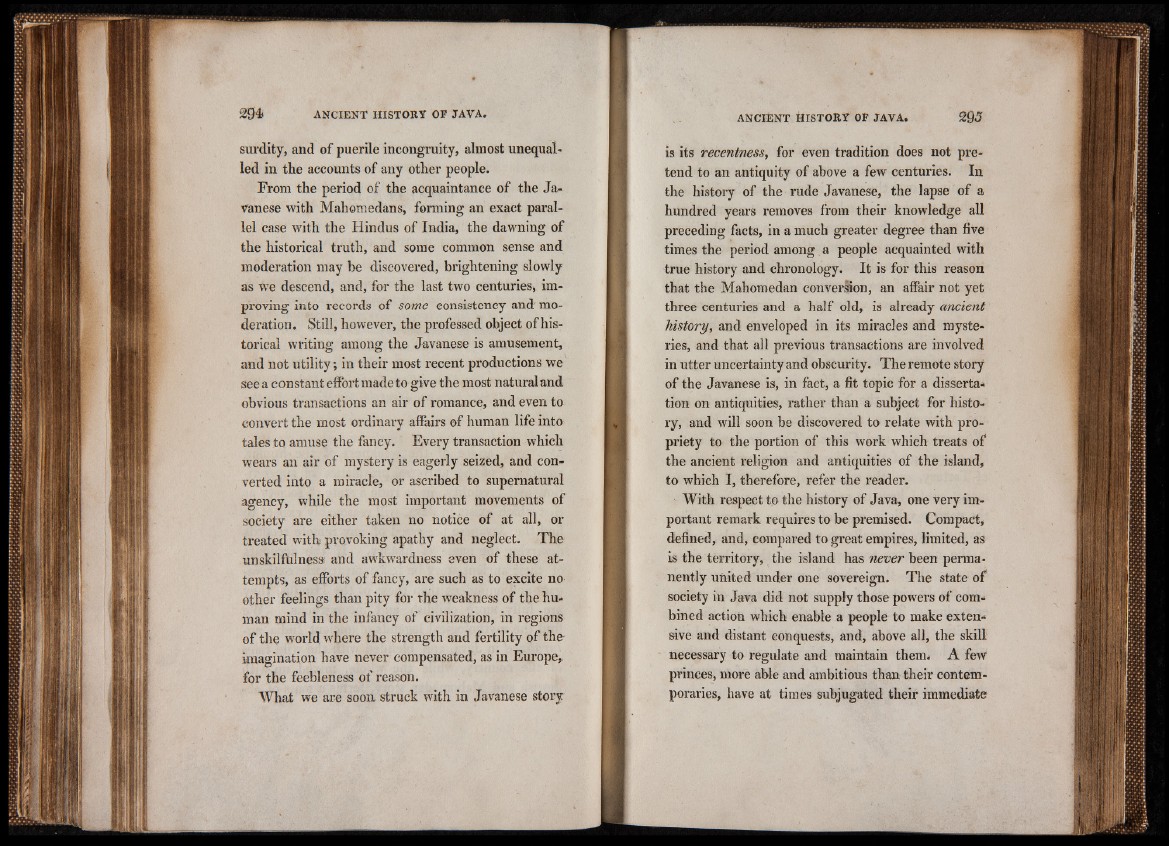
surdity, and of puerile incongruity, almost unequalled
in the accounts of any other people.
From the period of the acquaintance of the Javanese
with Mahomedans, forming an exact parallel
case with the Hindus of India, the dawning of
the historical truth, and some common sense and
moderation may be discovered, brightening slowly
as we descend, and, for the last two centuries, improving
into records of some consistency and' moderation.
Still, however, the professed object of historical
writing among the Javanese is amusement,
and not utility; in their most recent productions we
see a constant effort made to give the most natural and
obvious transactions an air of romance, and even to
convert the most ordinary affairs of human life into
tales to amuse the fancy. Every transaction which
wears an air of mystery is eagerly seized, and converted
into a miracle, or ascribed to supernatural
agency, while the most important movements of
society are either taken no notice of at all, or
treated with provoking apathy and neglect. The
unskilfulness and awkwardness even of these attempts,
as efforts of fancy, are such as to excite no
other feelings than pity for the weakness of the human
mind in the infancy of civilization, in regions
of the world where the strength and fertility of the
imagination have never compensated, as in Europe,,
for the feebleness of reason.
What we are soon struck with in Javanese story
is its recentness, for even tradition does not pretend
to an antiquity of above a few centuries. In
the history of the rude Javanese, the lapse of a
hundred years removes from their knowledge all
preceding facts, in a much greater degree than five
times the period among a people acquainted with
true history and chronology. It is for this reason
that the Mahomedan conversion, an affair not yet
three centuries and a half old, is already ancient
history, and enveloped in its miracles and mysteries,
and that all previous transactions are involved
in utter uncertainty and obscurity. The remote story
of the Javanese is, in fact, a fit topic for a dissertation
on antiquities, rather than a subject for history,
and will soon be discovered to relate with propriety
to the portion of this work which treats of
the ancient religion and antiquities of the island,
to which I, therefore, refer the reader.
With respect to the history of Java, one very important
remark requires to be premised. Compact,
defined, and, compared to great empires, limited, as
is the territory, the island has never been permanently
united under one sovereign. The state of
society in Java did not supply those powers of combined
action which enable a people to make extensive
and distant conquests, and, above all, the skill
necessary to regulate and maintain them. A few
princes, more able and ambitious than their contemporaries,
have at times subjugated their immediate